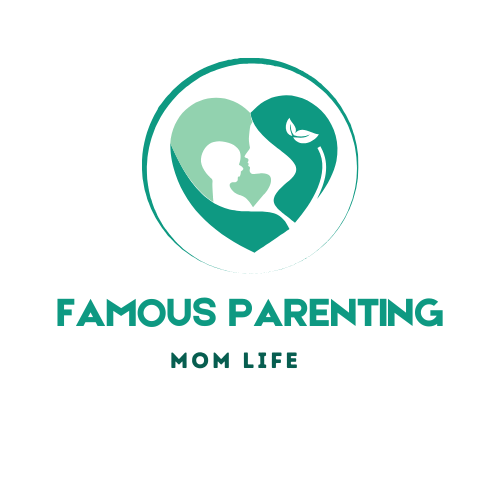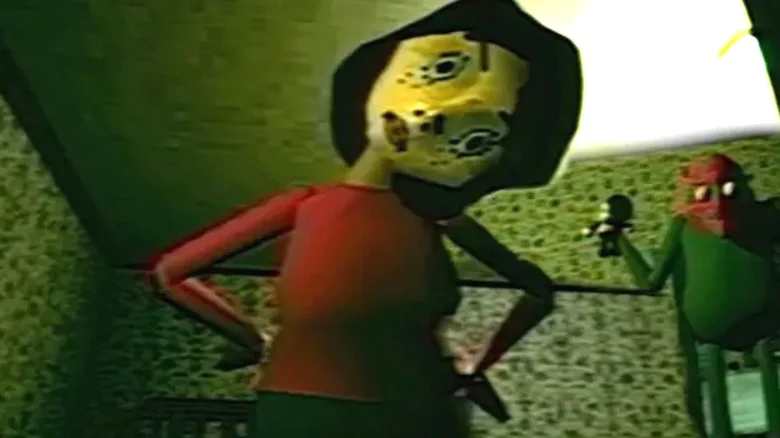The indie horror hit Bad Parenting 1: Mr Red Face is a phenomenon in gaming right now but one burning question on the tongue of many who have played it remains; IS BAD PARENTING BASED ON A TRUE STORY? It is this pressing and overarching question which has fuelled countless TikTok videos, Reddit threads and debates around the world between horror game aficionados.
Is Bad Parenting Inspired by a True Story? The definitive answer is no. This indie horror game is actually titled “Bad Parenting 1: Mr. Red Face,” and while the title itself gives it away, some players have suggested that this may be based on a true story due to the abuse of children shown in it. While the game was confirmed by its creator, Anh, that it is purely a fictional game but inspired of the child abuse issue in real life becauseit has kind of impression from his true experiences on Southeast Asia Game Wiki.
Here’s a more detailed explanation:
- Fictional Story: “Bad Parenting” is a fictional horror game with supernatural elements, but it explores the theme of child abuse.
- Inspiration from Reality: The game’s creator, Anh, has mentioned that the game is inspired by real-life experiences of child abuse, which he incorporated into the game’s narrative according to the Southeast Asia Game Wiki.
So in some worlds, “Bad Parenting” is nothing but an internet hoax, and any connections or comparisons between the game and real-life tragic events are just bigger loads of misinformation trolling you. Secondly, developer 2OO2 confirms on the official Steam page for the game that none of these elements are real, noting that “story and characters are works of fiction” and telling us not to fear Mr. Red Face in our dreams because he doesn’t exist.
But still this nagging question: “Is Bad Parenting a true story?” didn’t emerge from nowhere. The sickening, harrowing depiction of child abuse, domestic violence and psychological trauma in the game is so true to life that it feels like it must be based on real events. The realistic style had driven a lot of the speculation, and subsequently, fake news connecting the game with actual child cases.
How ‘Is Bad Parenting also kind of a true story’ went viral followed a now-deleted TikTok video that falsely claimed the series’ storyline was based on the 2013 murder of 8-year-old Gabriel Fernandez. The false claim has been posted and reposted thousands of times on social media over the years, perpetuating a myth that still may confuse players over just how the game was created.
Answering why people are looking up “Is Bad Parenting based on a true story?” explores the psychological horror, grounded family drama, and best-in-class usage of childhood trauma appealing to abuse survivors as well as a story requiring further analysis.
The Gabriel Fernandez Connection: Why Is Bad Parenting Based on a True Story Claims Started
Debunking the Viral Misinformation
The persistent question “Is Bad Parenting based on a true story?” gained traction after a viral TikTok video falsely connected the game to Gabriel Fernandez’s murder case. This tragic real-world case involved:
- Eight-year-old Gabriel’s systematic torture and murder by his mother and her boyfriend in 2013
- Months of horrific abuse that went unnoticed by authorities
- A case that became a Netflix documentary series, bringing renewed attention to child abuse
However, when examining whether Is Bad Parenting based on a true story through this lens, we find zero factual connections. The only similarity is the tragic theme of child abuse, but this alone doesn’t make the game based on Gabriel’s story or any specific real case.
The Dangerous Spread of False Information
The viral nature of “Is Bad Parenting based on a true story?” claims demonstrates how misinformation spreads on social media:
- Sensationalism: Connecting fiction to real tragedy generates more engagement
- Lack of Fact-Checking: Users share content without verifying sources
- Emotional Manipulation: Using real victims’ stories to promote fictional content
- Algorithm Amplification: Controversial content gets wider reach
Understanding Bad Parenting’s Fictional Horror Elements
Why the Game Feels So Real
When players ask “Is Bad Parenting based on a true story?”, they’re responding to the game’s authentic portrayal of:
Realistic Family Dynamics:
- A working mother struggling to balance career and parenting
- Verbal abuse from an alcoholic father figure
- Child’s desperate need for attention and validation
- The cycle of broken promises and disappointment
Psychological Accuracy:
- How children internalize blame for family problems
- The way trauma manifests in a child’s imagination
- Realistic responses to domestic violence
- The confusion between fantasy and reality in young minds
Environmental Storytelling:
- A cramped apartment that feels genuinely lived-in
- Details that suggest financial stress and family tension
- Objects that tell stories of neglect and dysfunction
- Spaces that feel simultaneously familiar and threatening
The Developer’s Artistic Vision
Developer Anh created “Bad Parenting” not because Is Bad Parenting based on a true story (it isn’t), but to explore universal themes of childhood trauma through a fictional lens. The game serves as:
- A commentary on cyclical abuse patterns
- An exploration of how children process family violence
- A psychological horror experience that builds empathy
- A work of art addressing serious social issues through interactive media
The Controversy Surrounding Bad Parenting’s Creator
Allegations That Changed Everything
While Is Bad Parenting based on a true story remains definitively answered as “no,” serious allegations against developer Anh have complicated the game’s legacy:
The Accusations:
- Inappropriate communication with a 14-year-old on the game’s Discord server
- Screenshots allegedly showing grooming behavior
- A pattern of concerning interactions with minors
Developer’s Response:
- Anh acknowledged some inappropriate behavior occurred
- Shifted blame to other Discord members
- Failed to directly deny the specific allegations
- Did not dispute the authenticity of damaging screenshots
Impact on the Game’s Reception
These revelations have transformed how players view the question “Is Bad Parenting based on a true story?”:
- Artistic Intent Questions: Are the themes exploitative rather than educational?
- Creator Credibility: Can content about child protection come from someone accused of inappropriate behavior with minors?
- Sequel Uncertainty: “Bad Parenting 2” remains unreleased amid the controversy
- Community Response: Many players now question supporting the developer
Is Bad Parenting Based on a True Story? The Psychology Behind the Question
Why Horror Games Feel “Real”
The persistent question “Is Bad Parenting based on a true story?” reflects how interactive horror media affects players differently than passive entertainment:
Immersion Factors:
- First-Person Perspective: Players experience events through the child’s eyes
- Interactive Control: Making choices creates emotional investment
- Environmental Exploration: Discovering story details through gameplay
- Psychological Identification: Players project their own experiences onto the narrative
Emotional Responses:
- Fear feels more personal when you control the victim
- Childhood trauma themes trigger protective instincts
- Realistic abuse scenarios activate empathy responses
- The helplessness of being a child in danger resonates universally
The Power of Authentic Fiction
Understanding why people ask “Is Bad Parenting based on a true story?” helps us appreciate how effective fiction works:
- Truth in Fiction: Good stories capture universal human experiences
- Emotional Authenticity: Realistic emotions don’t require real events
- Social Commentary: Fiction can address real problems without being factual
- Empathy Building: Stories help us understand experiences we haven’t lived
Media Literacy: Learning from the Bad Parenting Misinformation
The Importance of Fact-Checking
The “Is Bad Parenting based on a true story?” controversy teaches valuable lessons about digital literacy:
Red Flags to Watch For:
- Sensational claims without official sources
- Viral content that connects fiction to real tragedies
- Stories designed to generate shock rather than inform
- Claims that seem designed to increase engagement rather than educate
Better Research Practices:
- Check official developer statements and game documentation
- Look for credible gaming journalism sources
- Verify claims through multiple independent sources
- Be skeptical of social media content without citations
Responsible Sharing
When encountering questions like “Is Bad Parenting based on a true story?”, consider:
- The impact of spreading unverified information
- How false claims might affect real victims’ families
- The responsibility to fact-check before sharing
- The difference between discussion and misinformation
The Future of Bad Parenting and Its Legacy
What Happened to Bad Parenting 2?
Initially planned for release in 2024, “Bad Parenting 2” remains unreleased. While Is Bad Parenting based on a true story has been definitively answered, the sequel’s fate remains uncertain due to:
- The allegations against developer Anh
- Community backlash and changed public perception
- Questions about whether the project should continue
- Uncertainty about the developer’s current status and intentions
Lessons for Horror Game Development
The “Bad Parenting” phenomenon offers important insights for creators tackling sensitive subjects:
Best Practices:
- Include comprehensive content warnings
- Consult with trauma experts and abuse survivors
- Approach difficult subjects with sensitivity and research
- Maintain transparency about fictional vs. factual content
Avoiding Pitfalls:
- Don’t exploit real tragedies for marketing
- Ensure creator conduct aligns with stated values
- Build trust through consistent, ethical behavior
- Separate artistic intent from personal conduct
Conclusion: Fiction, Reality, and Responsibility
Is Bad Parenting a true story? Still, the answer is a resounding no. On the whole, The Dunwich Legacy is not a licensed product; it was written and developed by Anh as an independent work of fan fiction to explore themes of childhood trauma, domestic abuse, and psychological horror. The game’s story was not inspired by events in the real world, however dark they may be — like the tragic case of Gabriel Fernandez.
Still, people who saw Bad Parenting will always ask, ”Bad Parenting true story right?” shows a fundamental way we engage with media that talks about central social issues. The point of the video game is not a factual one, it’s not true but being as real children who have actually been through this, suffer from and even die are in real life the truth.
A lot has been said about whether or not Bad Parenting is a true story. is a primer on the importance of digital literacy in this day and age, the duty content producers have to be responsible about the content they create, and how important it is for viral assertions to fact-checked. That is not the truth but the effect demagogue disinformation has in real life remains.
Accusations against the developer in turn have made it even more difficult to talk about the game, showing how hard and dark a conversation that can be where it concerns separating art from artist, and an artist’s duty when they’re making something that centers around vulnerable populations, specifically children.
Whether or not you opt to view “Bad Parenting” as a piece of horror media is up to you, but if answered the question: “Is Bad Parenting based on a true story? helps us make informed decisions about the media we consume and share. The fictional nature of the game does not detract from its effect and relevance to social issues, but truthfulness in how we exchange information about it is key to trust between residents of our digital communities.
In this time of viral disinformation, “Bad Parenting” scandal existed to remind us that it is as important to know the truth behind a creative work as well as the work itself; and being socially responsible media consumers means we not just share but should also fact-check information online before hitting “Share”ocker.


